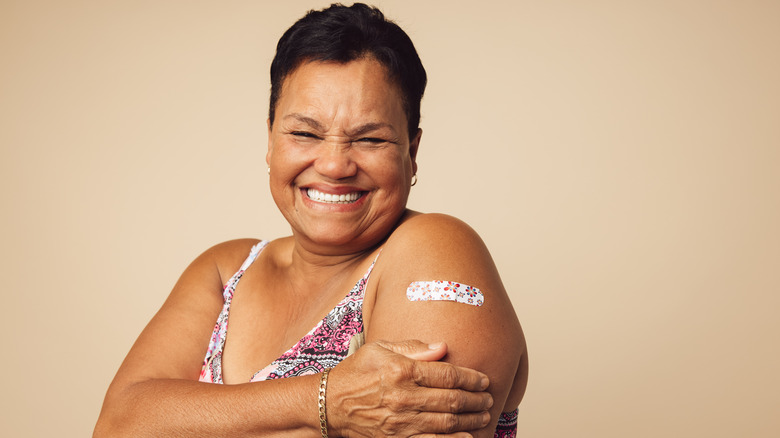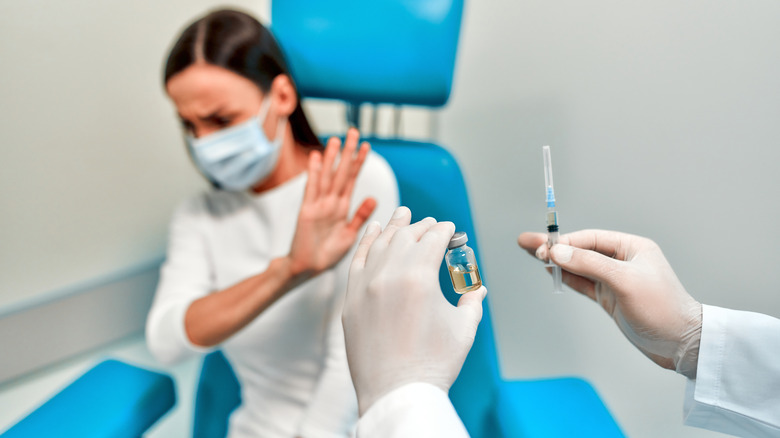The Science Behind Why Some Injections Hurt More Than Others
Doctors recommend certain vaccines in order to prevent or reduce the risk of getting certain illnesses. But one common side effect people hear about and often experience is soreness at the injection site. But there are plenty of things people can do to try and lessen that pain according to Unity Point Health. The first thing the health group recommends is to relax when getting the injection. The health website points out that flexing your arm, rather than keeping it loose and relaxed could lead to further pain. They also say it's important to move your arm. This allows the liquid from the vaccine to get further dispersed in your arm rather than having it stay all in one spot.
Along those same lines, the health group recommends stretching, particularly stretching your sore arm across your chest. Putting ice on the pain can also help according to Unity Point as it will reduce swelling near the injection site. In addition, over-the-counter medication like ibuprofen will help relieve the pain according to Unity Point. Lastly, they recommend avoiding strenuous exercise shortly after getting a vaccine as high-intensity activities can worsen soreness.
Which vaccines hurt the most
People can receive a lot of vaccines throughout the course of their life. So which ones hurt the most? The former director for the CDC's National Center for Immunization and Respiratory Diseases told The Wall Street Journal that different people can have different reactions to vaccines so there's no definitive ranking of which vaccine hurts the most. But the Wall Street Journal reports that certain vaccines have patients report significant amounts of pain. Those vaccines include ones that prevent patients from getting HPV, hepatitis A and B and DTaP, which includes diphtheria, tetanus, and pertussis protecion.
But the Wall Street Journal also notes that not everyone gets vaccinated to prevent certain diseases. Sometimes people get vaccinated with vitamins or steroids which can cause different sensations. Further, various vaccines have different pH levels and some experts believe that more acidic injections could cause increased pain. The Journal also says that some experts believe the volume of medication that's administered in a vaccine can result in different levels of pain.
What causes the pain
Though vaccines come with the expectation of pain, it still begs the question of why it hurts in the first place. Unfortunately, though, there isn't a clear-cut answer to that question. Nancy Messonnier, who at one time led the CDC's National Center for Immunization and Respiratory Diseases, told the Wall Street Journal in 2016 that epidemiologists weren't completely sure what the reason was behind the pain, and why some vaccines were more painful than others. However, she did have an educated guess. She blamed the pain on what's known as adjuvants. Adjuvants, according to News-medical, are substances in vaccines that are used to enhance a body's immune response.
Messonnier told the Wall Street Journal that the most common adjuvants in vaccines are aluminum salts and monophosphoryl lipid A. She said these ingredients are approved by the FDA and are completely safe. According to a physician that spoke to Teen Vogue, a bigger and duller needle could also contribute to pain. That same doctor told Teen Vogue that sometimes needles are struck through a rubber tube in order to draw out the vaccine, and that can dull the needle leading to a more painful injection.


